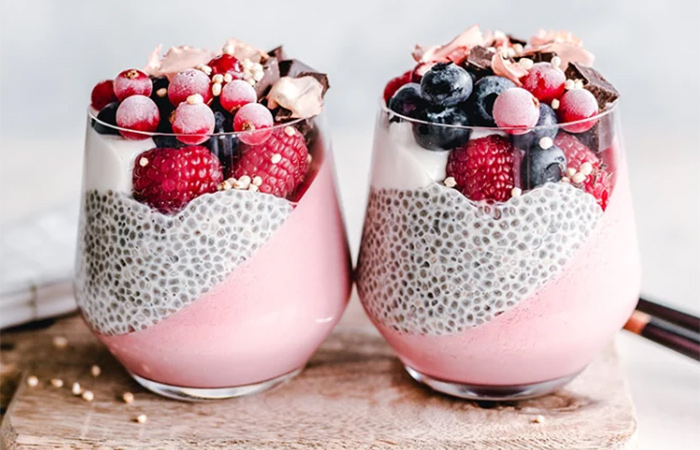
Chia seeds have gained significant popularity in recent years due to their impressive nutritional profile and numerous health benefits. These tiny black or white seeds come from the plant Salvia hispanica, which is native to Mexico and Guatemala. Despite their small size, chia seeds pack a powerful punch when it comes to nutrition. Let's explore the nutrition facts and health benefits of chia seeds.
Nutrition Facts: Chia seeds are an excellent source of several essential nutrients. Here is a breakdown of their nutritional composition per one ounce (28 grams):
Health Benefits:
Rich in Antioxidants: Chia seeds are loaded with antioxidants that help protect the body against damage caused by free radicals, which are unstable molecules associated with various chronic diseases and premature aging.
Excellent Source of Omega-3 Fatty Acids: Chia seeds are one of the best plant-based sources of omega-3 fatty acids, specifically alpha-linolenic acid (ALA). Omega-3 fatty acids are known for their role in reducing inflammation, supporting heart health, and improving brain function.
High in Fiber: Chia seeds are a fantastic source of dietary fiber, with almost all of their carbohydrates coming from fiber. This high fiber content promotes regular bowel movements, helps maintain healthy cholesterol levels, and contributes to a feeling of fullness, which can aid in weight management.
Bone Health: Chia seeds are rich in essential minerals like calcium, phosphorus, and magnesium, which are vital for maintaining healthy bones and teeth. These minerals work together to promote bone density and prevent conditions like osteoporosis.
Blood Sugar Regulation: The soluble fiber found in chia seeds forms a gel-like substance when mixed with liquid, which can help slow down digestion and the conversion of carbohydrates into sugar. This property makes chia seeds beneficial in managing blood sugar levels, particularly for individuals with type 2 diabetes.
Hydration and Exercise Performance: When soaked in water, chia seeds form a gel that retains liquid and helps keep the body hydrated. This quality, combined with their nutrient density, makes chia seeds a popular choice among athletes and individuals engaging in prolonged physical activity.
Incorporating Chia Seeds into Your Diet: Chia seeds have a mild, nutty flavor and can be easily incorporated into various dishes. Here are some ideas for adding chia seeds to your diet:
It's important to note that chia seeds absorb liquid and expand, so it's crucial to drink an adequate amount of water when consuming them to prevent any potential digestive discomfort.
Conclusion: Chia seeds are a true superfood, offering a wide range of essential nutrients and health benefits. From providing omega-3 fatty acids to supporting bone health and aiding in blood sugar regulation, these tiny seeds are a nutritional powerhouse. By incorporating chia seeds into your diet, you can enhance your overall well-being and enjoy the numerous advantages they offer.
Established in 2013, FamilyNeeds.net is connected to your lifestyle and everyday life. Publish reviews of your life, style, fashion and essentials.